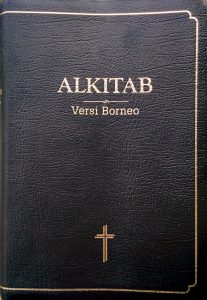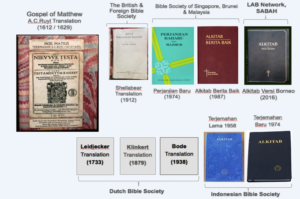Friends and Countrymen, lend me your ears.
I come to share Alkitab’s goodness, not to use it to spread confusion.
This evil from the government will be remembered even after its downfall;
For the good Alkitab is suppressed by injustice of the Court.
The honorable judges declared Alkitab is dangerous to Muslims.
This is a serious slander and Alkitab paid dearly for it.
Do Christians threaten violence like Perkasa when Alkitab is banned?
And the Court insists Alkitab is dangerous!
Dangerous books make men spiteful and vindictive;
But Christians offer a message of God’s love and forgiveness.
Yet the court insists Alkitab is dangerous;
And the Court judges are honorable men.
I am not here to refute the Court judgment,
But I am here to speak what I know;
You all who love justice and peace, and not without reason:
What holds you from mourning for maligned Alkitab?
O Sound Judgment! You have fled from brutish beasts,
And honorable men have lost their reason. Bear with me;
My heart is with Alkitab interred in dark storerooms of the authorities,
And I must grieve till it is returned to the Christians.
—————
NEWS LINKS:
MalaysianInsider – Christian paper loses battle to use ‘Allah’
MalayMailOnline – ‘Allah’ ruling vindicates Mais, Jais in bible tussle, says Perkasa

